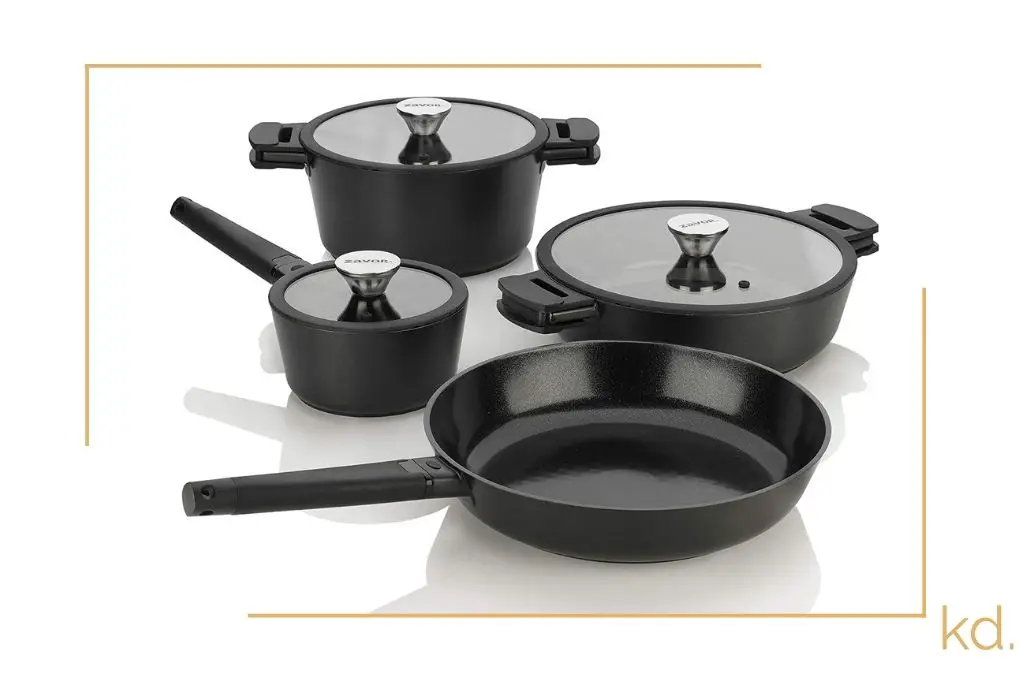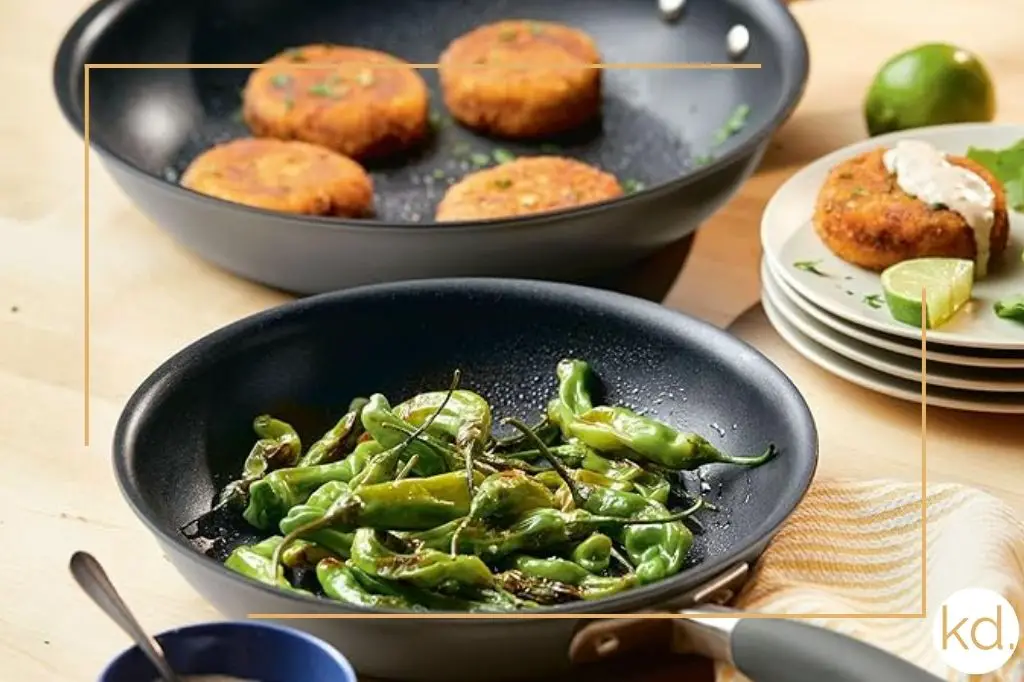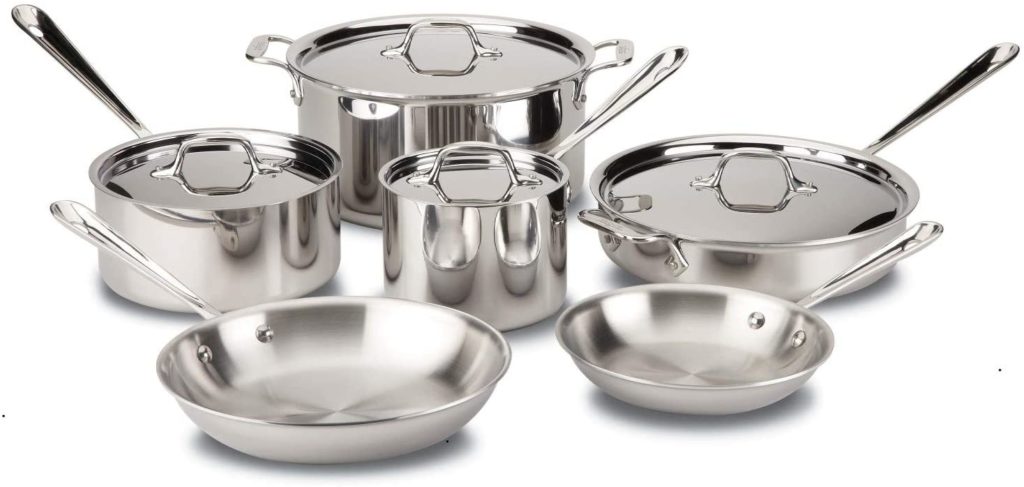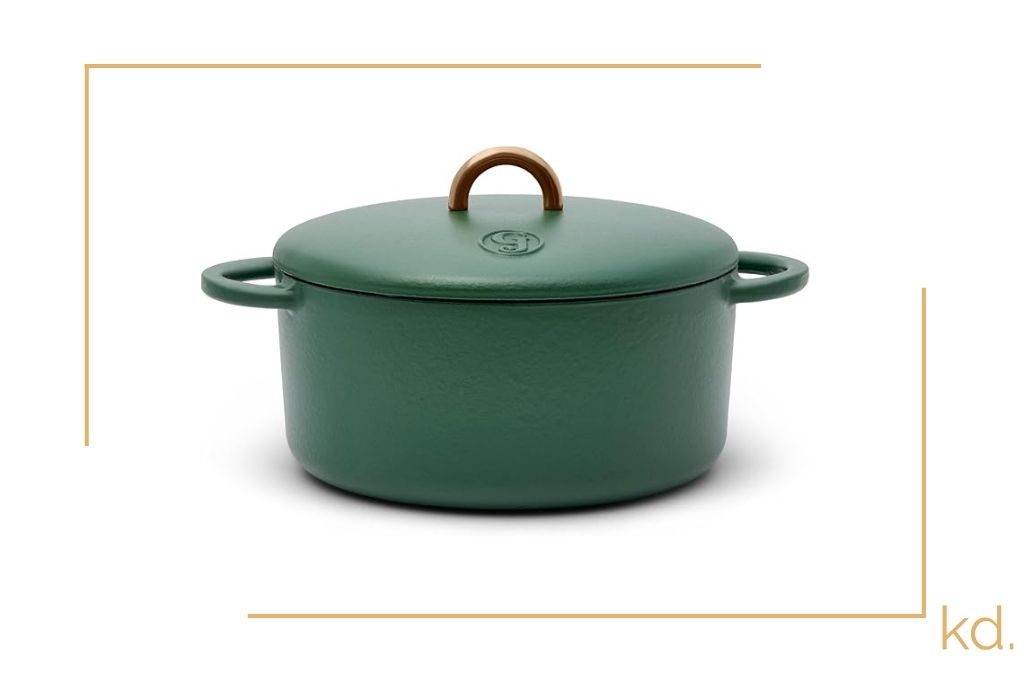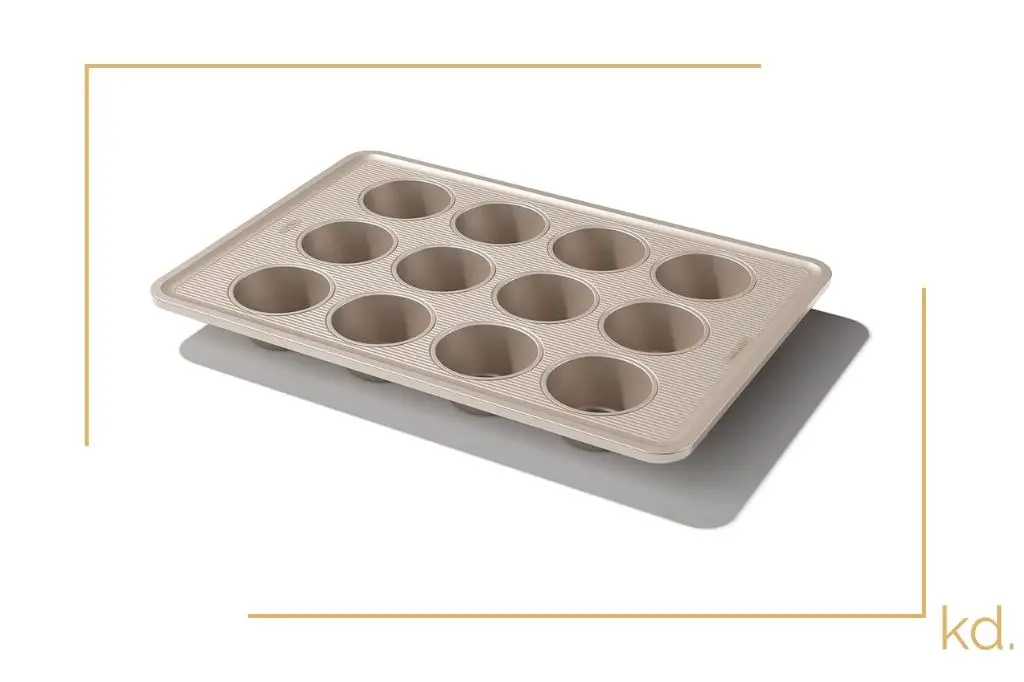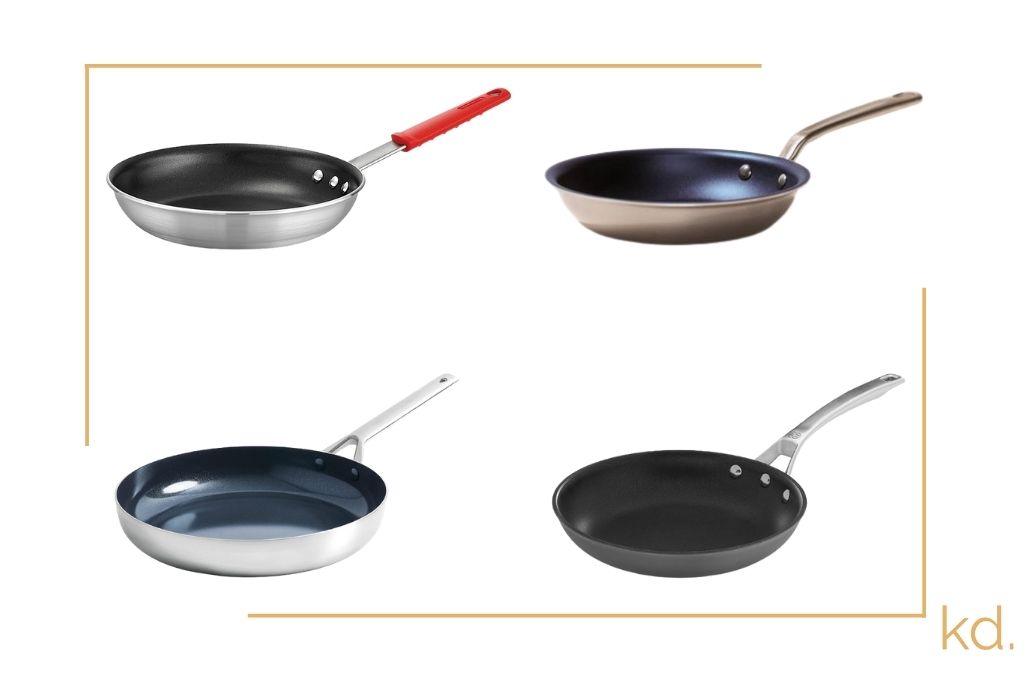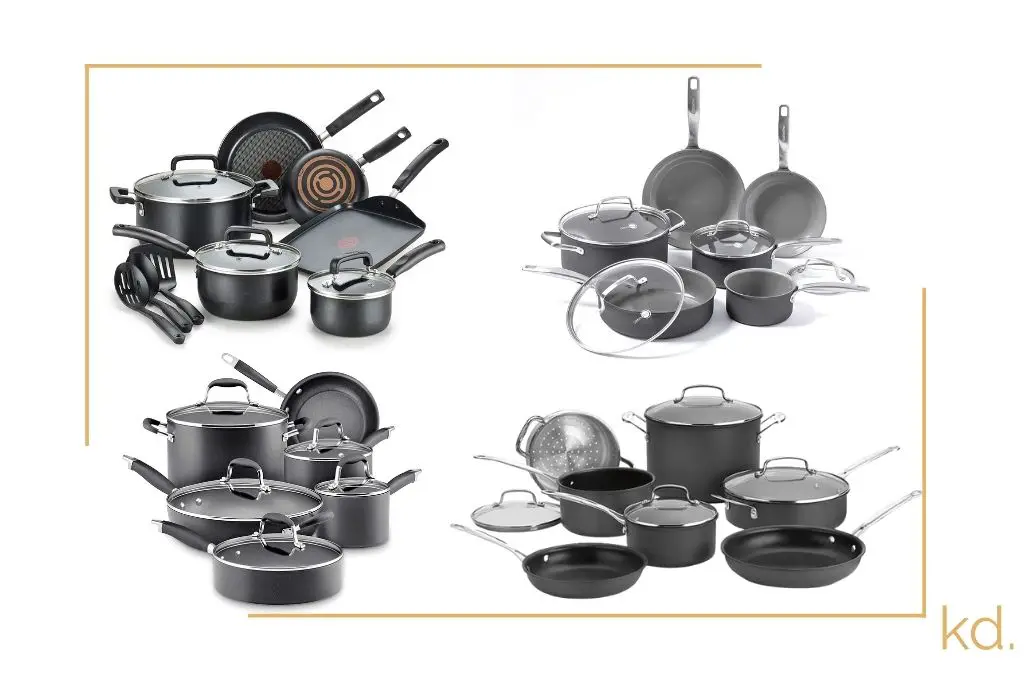Cast aluminum cookware has been around since the early 20th century, and although it’s still popular today, you might have some concerns about its safety. Before deciding whether to buy cast aluminum cookware or not, make sure you know about its pros and cons, as well as what makes this type of cookware unique in the first place.
Here’s what you need to know about cast aluminum cookware so you can decide if it’s right for your kitchen or not.
Use links below for easy navigation
Cast Aluminum Cookware Pros and Cons
What is Cast Aluminum Cookware
Cast Aluminum Cookware Pros
Cast Aluminum Cookware Cons
Cast Aluminum Cookware Vs Aluminum Cookware
Final Thoughts
Cast Aluminum Cookware Pros and Cons
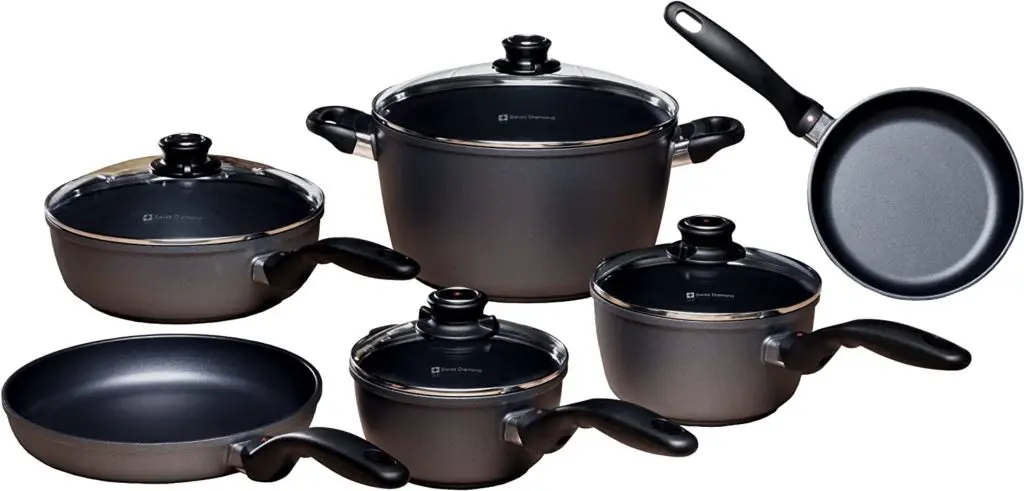
You’ve probably seen advertisements for cast aluminum cookware or wondered about the benefits of using this type of cookware over others. Is it safe? How does it perform in comparison to other kinds of cookware?
Here we’ll take an in-depth look at cast aluminum cookware and weigh the pros and cons so you can decide if it’s the right choice for your kitchen needs.
Related: Titanium cookware pros and cons
What is Cast Aluminum Cookware?
Cast aluminum cookware is made of aluminum that has been cast into molds to create a unique shape. The result is an extremely durable metal that can be used to cook just about anything you would use other types of metal cookware for.
Cast Aluminum Cookware Pros
Cast aluminum cookware is a great choice for everyday use. It’s lightweight, easy to maneuver, and provides even heating—perfect for anyone who doesn’t want to spend too much time cleaning up after an incident.
Let’s take a look at the Pros of Cast Aluminum Cookware.
Nonstick
Cast aluminum cookware has a nonstick coating and comes in many different varieties—from basic pots and pans to specialty items like double skillets or griddles. You can find everything from small skillets that fit nicely on your stovetop to large pots with multiple cooking surfaces that will accommodate larger meals or family gatherings.
Lightweight:
Another great feature is its lightweight. Cast aluminum cookware is lightweight which means there are no added pounds that take up unnecessary space in your kitchen cabinets. This makes them perfect for any kitchen countertop where they can be stored easily without taking up too much space!
Easy to maneuver:
Cast aluminum cookware can be moved around easily and placed in different places without worrying about them getting damaged.
The handles are built into the pan so you don’t have to worry about burning your hands when you’re cooking with it.
Even heating:
The metal of the cookware is evenly heated all around, so you don’t risk burning your food or yourself.
Durable:
Cast Aluminum cookware is known for its durability and longevity. It can withstand high temperatures and temperatures that may cause your other cookware to crack or break. This is a great feature if you want to use your cast aluminum cookware on the stovetop or in the oven without worrying about it cracking or breaking on you.
Related: Enameled Cast Iron Cookware Pros and Cons
Doesn’t Bend or Break:
Not only do cast aluminum pans keep looking new for years after purchase, but they’re also highly durable and sturdy enough to withstand heavy use without bending or breaking under stress from heat or pressure from food items placed inside them during cooking processes.
Cast aluminum cookware won’t crack or shatter like other types of metals might when subjected to similar conditions.
Environmental Friendly:
Cast aluminum also has an environmentally friendly design that helps minimize waste, so you can rest assured that your kitchen won’t be filled with plastic or other harmful materials.
Related: Marble Cookware pros and cons
Versatile
Cast aluminum is a versatile cookware material. Its versatility makes it a good choice if you’re looking for something that can be used on the stovetop or in the oven. Cast aluminum cookware works well with both gas burners and electric ones—it just depends on your preference!
Related: Brass Cookware Pros and Cons
Cast Aluminum Cookware Cons
Cast aluminum cookware is a great choice for many people, but it has a few downsides.
Corrodes Overtime:
The first downside is that cast aluminum cookware corrodes over time. The metal oxidizes and can cause staining and browning when exposed to acidic foods like tomatoes, lemon juice, and vinegar. This is why you should never use these types of pans on the stovetop, as they’ll burn easily.
Reacts with food:
The second downside is that cast aluminum pan reacts with foods. If you’ve ever cooked eggs in a pan made from this material, you may have noticed that they come out yellow or green—this is because the metal reacts with food acids and releases copper ions into your food.
It’s not harmful to consume these types of foods but it’s definitely an aesthetic issue that won’t be worth it if you’re trying to impress guests or if you’re a chef looking for high-quality cookware.
Not as durable as stainless steel:
Cast aluminum cookware is more likely to be scratched or dented than stainless steel, which means it will lose its shine over time and require more maintenance work to keep looking good.
Difficult Cleanup:
Finally, cleanup is difficult with cast aluminum cookware because it scratches easily and doesn’t hold up well against heat or other harsh chemicals in your kitchen cabinet (like cleaners).
Cast Aluminum Cookware Vs Aluminum Cookware
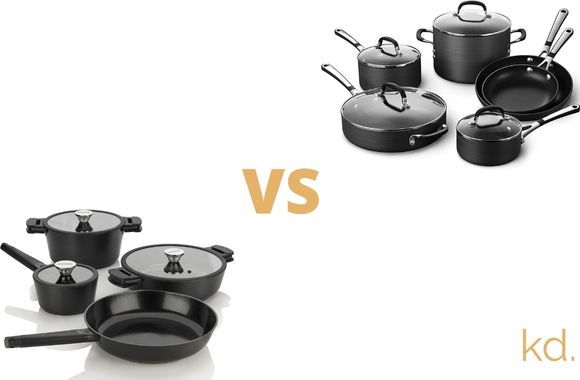
Cast Aluminum cookware is made of aluminum by pouring it into the cast. This cookware is widely used in the kitchen because it can withstand high temperatures and has no taste or odor.
Cast Aluminum cookware can be used to cook any kind of food. It is durable, lightweight, and easy to clean. Aluminum also has low maintenance costs when compared to other types of cookware materials such as stainless steel or iron. The main disadvantage of using aluminum over other more expensive materials for cooking is that it does rust easily if left exposed to moisture or humidity for too long.
Aluminum cookware is great for those who are new to cooking because it heats quickly and evenly, which helps prevent burning foods in the pan. It is also easy to clean after cooking because it does not contain any harmful chemicals or toxins like other types of cookware.
The main disadvantage of using aluminum over other more expensive materials for cooking is that it will scratch easily if touched inappropriately with metal utensils such as forks or spoons while using them on top of your stovetop burners.
Is it safe to use cast aluminum cookware?
Yes! Cast aluminum cookware is completely safe to use. It’s strong, lightweight, and retains heat better than aluminum.
Is cast aluminum better than stainless steel?
Stainless steel is much more durable than cast aluminum but cast aluminum cookware is lightweight and can withstand high temperatures without cracking, so it’s a great choice for those who want their pot to be lightweight and not heavy or bulky.
Final Thoughts
How would you like to reduce the number of dishes you have to wash every night? If so, you may want to consider getting yourself some cast aluminum cookware from brands like Calphalon or Cuisinart.
Cast aluminum cookware offers plenty of advantages over regular pots and pans, but it does come with its fair share of risks.
